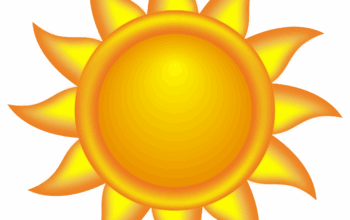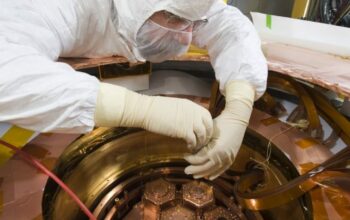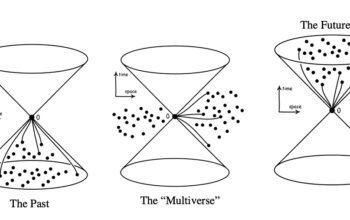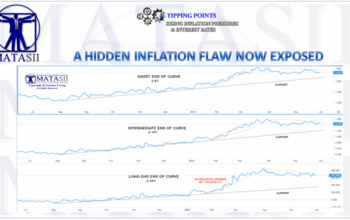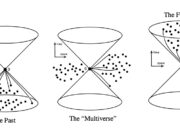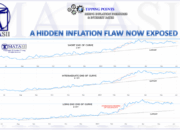The enigmatic realm of quantum mechanics, a domain often shrouded in abstraction and paradox, invites scholars and enthusiasts alike to scrutinize its underpinnings and implications. At the intersection of classical physics and quantum theory lies the figure of James Clerk Maxwell, celebrated predominantly for his profound contributions to electromagnetism. Yet, as we interrogate the fabric of his theoretical constructs, a compelling proposition unfolds: was Maxwell, in essence, quantum before quantum? This thought experiment endeavors to engage with such an audacious inquiry, drawing parallels between Maxwellian principles and the emergent phenomena characteristic of quantum theory.
To embark upon this exploration, one must first delineate the foundational aspects of Maxwell’s contributions. Central to his legacy is the formulation of Maxwell’s equations, which succinctly characterize the behavior of electric and magnetic fields. These equations reveal a profound interconnectedness of forces, demonstrating that light is an electromagnetic wave. However, it is within his theoretical framework that the seeds of quantum-like phenomena can be discerned. Are we, thus, to interpret Maxwell’s conceptualization of fields and wave propagation as precursors to the wave-particle duality famously espoused by quantum mechanics?
Within the classical paradigm, electromagnetic waves propagate through aether—the yet-to-be-empirically confirmed medium. Maxwell’s unwavering confidence in the existence of this invisible medium evokes a quantum-like resolve to posit unseen realities. In so doing, he lays the groundwork for a significant paradigm shift: an awakening to the notion that phenomena exist beyond immediate perception. The implications of introducing an intermediary medium can be likened to the hypotheses posited in quantum field theory, where fields are intrinsic to the manifestation of particles.
Moreover, Maxwell’s statistical interpretation of molecular motion introduces another intriguing parallel. His kinetic theory delineates that gases comprise countless molecules in perpetual motion, aligning with statistical distributions to explain macroscopic phenomena. This collective behavior is evocative of the probabilistic nature inherent in quantum mechanics, where outcomes are predicated not on deterministic pathways but on the summation of quantum states. Could it be postulated that Maxwell’s kinetic theories foreshadowed the probabilistic dispositions that quantum entities exhibit?
As we traverse further into Maxwell’s portrayal of energy transfer, the analogy to quantum mechanics becomes increasingly vivid. His emphasis on the interchangeability of energy forms through electromagnetic radiation provides an impetus to consider energy not merely as a solitary entity but as a dynamic process, interwoven with the tapestry of material existence. This shifting conceptualization aligns with the notion in quantum mechanics that energy can exist in quantized states, fluctuating between distinct manifestations while remaining fundamentally interrelated.
In awakening to the resonance between Maxwellian insights and quantum phenomena, we are invited to contemplate a crucial thought experiment: what would unfold if Maxwell himself were engendered within a quantum framework? This prompts an examination of the classical versus quantum dichotomy. Maxwell’s equations yield determinate predictions about electric and magnetic fields under specified conditions. In stark contrast, quantum mechanics introduces uncertainties intrinsic to the system, governed by the Heisenberg uncertainty principle. Could the embrace of inherent uncertainty within Maxwell’s constructs encourage a re-evaluation of determinism in light of the quantum framework?
Furthermore, consideration of the implications of Maxwell’s equations on the propagation of light suggests an entanglement with quantum concepts. In the phenomenon of wave-particle duality, the dual aspects of light as both wave and particle echo the intrinsic dual nature present within Maxwellian theory. If light, as predicted by Maxwell, manifests as both waves that can interfere and particles that can collide, one might argue that the very essence of light has always danced within the quantum sphere, eluding simplistic categorization.
The philosophical ramifications of this inquiry stretch far beyond the classical dichotomy, into the very nature of reality itself. What if Maxwell presaged a universe where uncertainty and indeterminacy reign supreme? The appeal of this thought experiment lies in its potential to stimulate revolutionary perspectives on the convergence of classical electromagnetism and the quantum field, granting us permission to imagine a departure from established dogmas. Thus, it engenders a unifying discourse across disciplinary boundaries, heralding a deeper comprehension of our universe.
Connecting the classical and the quantum may also invoke the principle of complementarity as articulated by Niels Bohr. The manner in which electromagnetic radiation presents itself as both wave and particle could reflect a higher-order principle derived from Maxwell’s equations, one that illuminates how different layers of reality coexist and intermingle. In addressing whether Maxwell’s framework foreshadowed quantum phenomena, we delve into the complexities of reality and compel further inquiry into the micro and macrocosmic interdependencies.
In summation, to reckon with the proposition that Maxwell was quantum before quantum is to engage with the fundamental nature of reality itself. This examination compels us to reconsider the categorical separations devised by physicists over the centuries. As Maxwell’s equations imbue the discourse of physics, they may also serve as a bridge to the quantum domain, calling us to perceive the universe not merely as a conglomerate of separate entities but as a cohesive continuum. Such an understanding invites curiosity and promises an intellectual journey over the thresholds of scientific inquiry, revealing a profound interconnectedness that transcends our traditional comprehension of existence.
